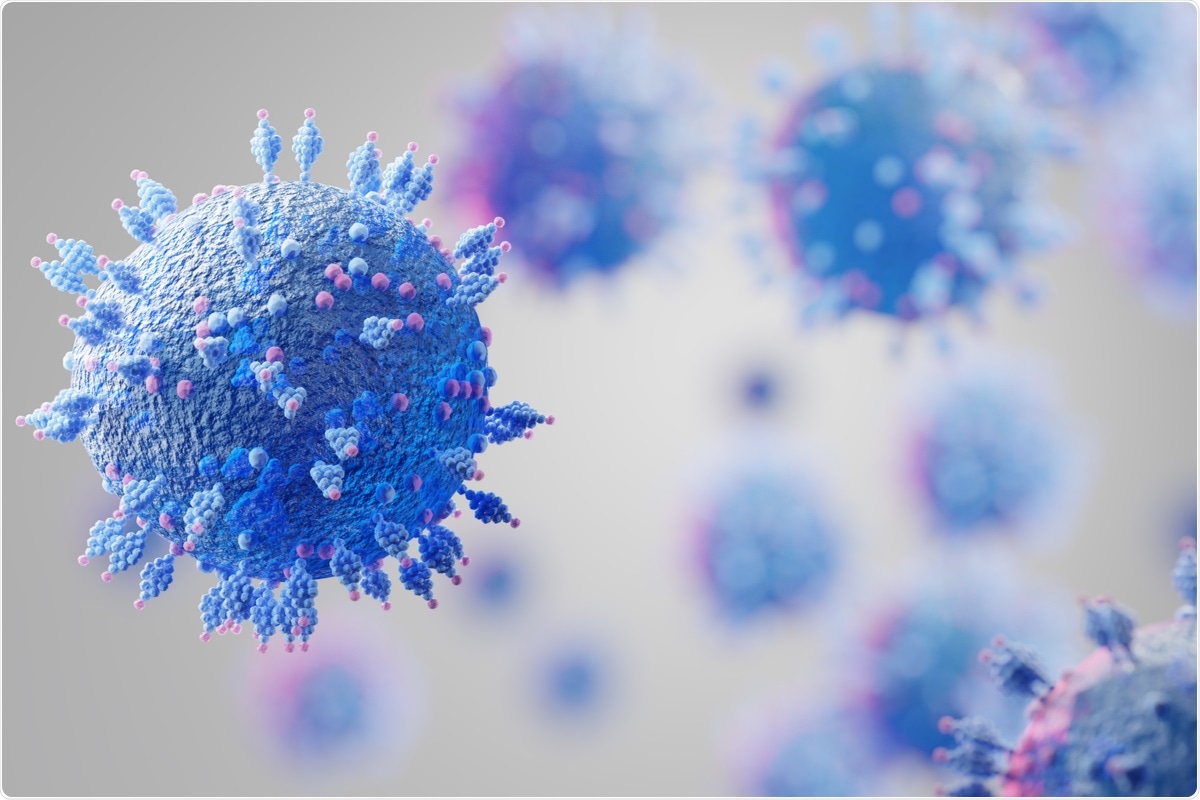
A team of UK-based scientists has recently developed an allele-specific probe polymerase chain reaction method that can accurately detect different variants/lineages of severe acute respiratory syndrome coronavirus 2 (SARS-CoV-2) in respiratory samples. The method can detect viral variants even in samples with low viral RNA or degraded viral RNA. The study is currently available on the medRxiv* preprint server.
 Study: Highly-Sensitive Lineage Discrimination of SARS-CoV-2 Variants through Allele-Specific Probe Polymerase Chain Reaction. Image Credit: Fit Ztudio/ Shutterstock
Study: Highly-Sensitive Lineage Discrimination of SARS-CoV-2 Variants through Allele-Specific Probe Polymerase Chain Reaction. Image Credit: Fit Ztudio/ Shutterstock
Background
The ongoing coronavirus disease 2019 (COVID-19) pandemic has become a major public health crisis, with 247 million infections and 5 million deaths. Despite rapid development and deployment of potential vaccines, a continuous rise in pandemic trajectory has been observed globally. This could be due to the emergence of new viral variants with multiple spike mutations that make the virus resistant to antibody-mediated neutralization. Thus, rapid and accurate detection of viral variants is important to tract viral transmission and assess risk.
Whole-genome next-generation sequencing methods are considered the golden standard for detecting viral variants. Viral samples used in these methods must have good quality and a high level of viral RNA. However, samples collected from patients at the later phase of infection often contain a low level of viral RNA. Moreover, rapid degradation of RNA could occur due to the mishandling of samples during transport and storage. These factors could essentially limit the widespread use of next-generation sequencing methods.
In the current study, the scientists have developed a real-time quantitative polymerase chain reaction (PCR)-based method that can detect viral variants even in samples with low viral RNA content or degraded RNA.
The method
The method is called allele-specific probe PCR. It utilizes two fluorescently-labeled probes with differential binding affinities that target variant-specific single nucleotide polymorphisms in the SARS-CoV-2 genome.
The scientists utilized this method to detect viral variants in two groups of SARS-CoV-2-infected patients. In a trial conducted in the UK, they analyzed 717 respiratory samples by the method to detect alpha variant of SARS-CoV-2 by targeting the spike mutation D1118H. In another trial conducted in Brazil, they analyzed 365 samples by the method to detect P1 and P2 variants by targeting the spike mutation K417T and open reading frame 1a (ORF1a) mutation L3468V, respectively.
Furthermore, they compared the sensitivity and specificity of allele-specific probe PCR method with next-generation sequencing methods in both trials.
Important observations
The analysis of samples from both trials revealed that the allele-specific probe PCR method has a 25% higher ability than the next-generation sequencing method to detect viral variants in samples with a wide range of viral loads.
The analysis of samples with degraded viral RNA revealed that the quality of RNA does not affect the functionality of the allele-specific probe PCR method. It could effectively sequence 95% of degraded samples, while the next-generation sequencing method could sequence only 0 – 11% of degraded samples.
Importantly, both allele-specific probe PCR and next-generation sequencing methods showed 99% comparability in detecting viral variants. Moreover, the allele-specific probe PCR method showed 98% sensitivity and 100% specificity for the alpha variant, 90% sensitivity and 95% specificity for the P1 variant, and 100% sensitivity and 91% specificity for the P2 variant.
A probit regression analysis was conducted to predict the functionality of the allele-specific probe PCR method over a sample population. The findings revealed that the method has the highest superiority over the next-generation sequencing method for detecting viral variants in samples with Ct values between 26-30. The allele-specific probe PCR method was predicted to sequence 96% of these samples effectively, while the next-generation sequencing method was predicted to sequence only 30 – 40% of these samples.
Study significance
The study describes the development of an allele-specific probe PCR method that is 99% effective as next-generation sequencing methods to detect viral variants in respiratory samples. Importantly, this new method can successfully discriminate between variants in samples with a low level of viral RNA or degraded viral RNA. Another advantage is that the method can be easily modified to target new single nucleotide polymorphisms that may arise in the SARS-CoV-2 genome in the future.
*Important notice
medRxiv publishes preliminary scientific reports that are not peer-reviewed and, therefore, should not be regarded as conclusive, guide clinical practice/health-related behavior, or treated as established information.